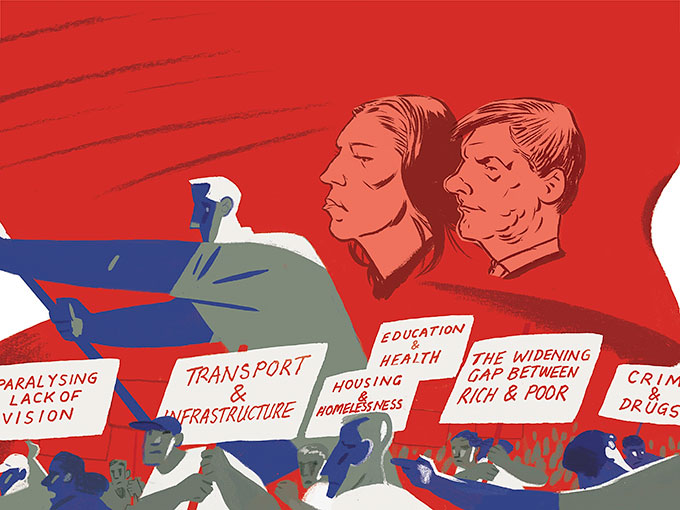Oct 12, 2017 Politics
Six urgent priorities for Auckland
1. Housing & homelessness
It’s at crisis point, and it’s the biggest Auckland issue facing the next government. Housing — and therefore homelessness — is the gold-medal winner of this city’s social-problem Olympics: its links to other issues such as child poverty and the widening gap between rich and poor elevate it to the top of the podium over transport and infrastructure.
The National-led government has consistently denied any crisis exists. You know, kind of like how Blam Blam Blam sang in “There is No Depression in New Zealand” that there are no sheep on our farms. It’s the dictionary definition of denial. In February, the Salvation Army’s State of the Nation report laid out the facts: Auckland’s population grew by 181,500 in the five years to September 2016, and using the 2006 Census average of three people per dwelling, we need 60,500 more homes to meet demand. Yet only 39,627 new-home consents were issued, leaving a substantial shortfall.
Work and Income gave out 8860 emergency housing grants to 2600 Auckland families in the last three months of 2016, forking out $7.7 million on motel bills, almost four times the budget for the entire year. At current spending rates nationwide, the 2017 bill could climb to $50 million. Auckland Council estimates there are now more than 23,000 homeless, up 3000 from four years ago, made up of people sleeping rough, in cars, in emergency housing, couch surfing, and living in “uninhabitable” buildings such as garages and sheds.
Meanwhile, the average house price in Auckland came closer than science to discovering antigravity, rising 83 per cent (from $553,196 to $1,013,632) between 2013 and 2016. In the same period, mean rents climbed from $468 to $544, forcing others deeper into poverty.
What has to change?
The next government must first demonstrate resolve by appointing ministers to the relevant portfolios who have the ability to effect real change. Auckland’s rise to the fourth-least-affordable city in the world, with house prices 10 times the median income, happened on the watch of the most mediocre Cabinet in our history, led by the human windsock, John Key. The new Cabinet must act to strongly discourage speculation, encourage new construction, and change the way immigration currently works.
To discourage speculation, we need a capital gains tax, a ban on foreign nationals buying existing homes, and an overhaul of the tax laws that encourage property investment outside the primary home.
We need measures to speed up construction while the work to make more land available urgently continues. But Aucklanders also need to embrace medium-density housing. Building materials here are far more expensive than in other countries, and the government must do more to create competition for Fletchers. Crucially, Auckland Council must be allowed to increase its revenue to invest in infrastructure, either from the return of the $200 million in GST charged annually on rates, or through some other tax.
Finally, Auckland cannot continue to sustain record immigration, with 31,000 new arrivals in the past year. It is not racist or xenophobic to say so. The flow must either be constricted, or incentives (other than our traffic) created to help encourage a population shift to the regions.
As well as the positive social effects of increasing the supply of affordable homes, discouraging property as an investment will free up moribund capital for more productive areas of the economy. Greater investment in businesses, for example, means higher wage growth.
The time has come for Auckland’s housing insanity to end, and for balance to be restored. Step to it.
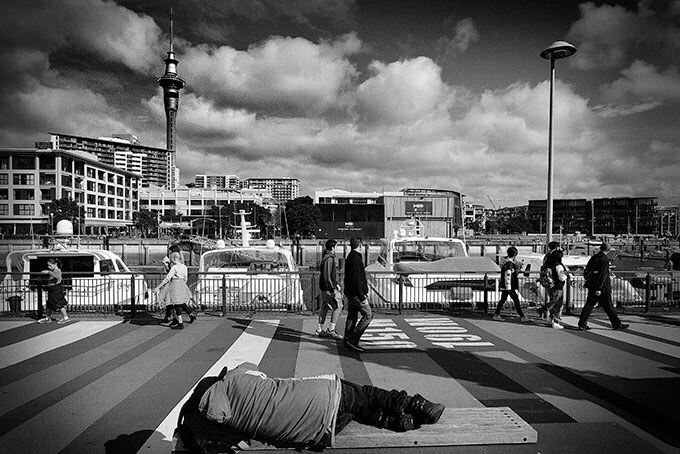
2. Transport & infrastructure
Auckland’s traffic, and how record population growth will strain infrastructure in the future, is a burning issue.
Our traffic troubles are now costing as much as $2 billion a year, crushing productivity in the process. Around 120,000 new vehicles were registered in Auckland in the past three years, while the average speed on our motorways dropped from 64km/h in 2014 to 55km/h in 2016. Around 25 per cent of the city’s main roads are congested at peak times, up from 18 per cent only two years ago.
National has pledged $2.6 billion in new spending, after years of obfuscation and obstruction on everything from the City Rail Link to a regional petrol tax.
Labour has also promised heavy investment, including light rail to the airport within 10 years, a project opposed by National. That would provide Auckland with a piece of transport infrastructure enjoyed by practically every other major city in the world.
Largely missing from any of the discourse is the need to reduce the amount of traffic in any direction. Spending billions on new roads doesn’t fix the root cause, which is people commuting in the first place. With super-fast internet, online chat technologies and video conferencing, the reason so many businesses require their staff to be constantly physically present in the city remains baffling. Why can’t we incentivise people to work more from home or from their local communities, relieving pressure on the whole system?
If the decision is to continue endlessly expanding the asphalt, then also incomprehensible is the government’s recalcitrance about Auckland Council’s ability to raise funds through a regional petrol tax, congestion tax, or tolls — all of which could discourage the thousands of single-occupant cars on Auckland’s roads. The next government must get over this anxiety about the council raising revenue from sources other than rates. The council must find a way to incentivise people into ride sharing.
Our freshwater supply is threatened by major “rainfall events” such as the Tasman Tempest experienced in March. These are predicted by climate modelling to increase in frequency. Watercare’s $1.7 billion plan for new major drainage pipes should be fast-tracked, and supported by the new government.
The council’s vision is for Auckland to be the “world’s most liveable city”. There’s an apocryphal story about John Lennon being asked if Ringo Starr was the best drummer in the world. “He’s not even the best drummer in the Beatles,” Lennon said. Our traffic ensures Auckland isn’t even New Zealand’s most liveable city. Fixing our traffic problem and empowering the council to do more financially are urgent priorities.
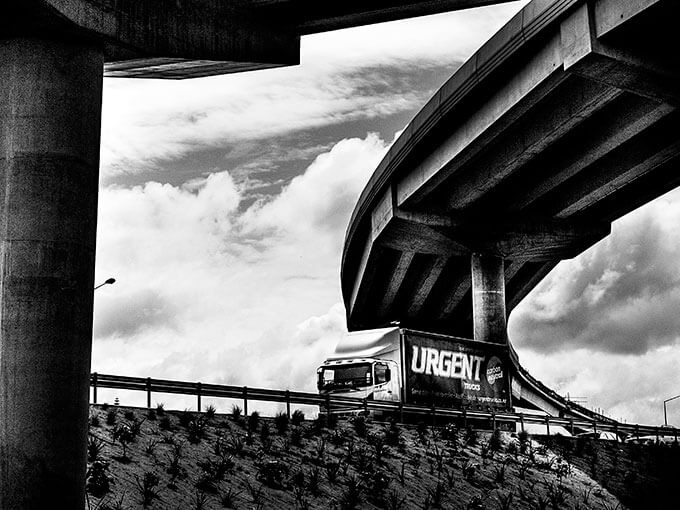
3. The widening gap between rich and poor
New Zealand used to be one of the world’s foremost socially progressive democracies, with egalitarianism and the principle of equality of opportunity at the very heart of our national values. We enacted world-leading policies, from giving women the vote to the creation of social welfare, going nuclear-free, homosexual law reform and same-sex marriage.
Thirty years of neo-liberal economic policy have not made New Zealand a better or fairer society. That is a fact. In 2015, according to Statistics New Zealand, the top 10 per cent of households controlled 60 per cent of the wealth, with the top 5 per cent controlling around 45 per cent and the top 1 per cent controlling 22 per cent. The bottom 40 per cent of households control just
three per cent.
A 2014 OECD report found New Zealand had the biggest increase in income gaps of any developed country in the two decades from 1985. Bill English, Finance Minister when the report came out, dismissed the findings as “nothing out of the ordinary”. The same report found our rising inequality had curtailed economic growth by at least 10 per cent.
Last year, Auckland City Mission provided 14,000 food parcels to help feed more than 40,000 people (one food parcel feeds an average of three people). Poverty is becoming entrenched and normalised. We’re used to seeing people sleeping rough on our streets, or begging for food or money, and perhaps it no longer affects us or moves us to compassion as it once did. We are approaching an economic and social crossroads: down one path lies a future Victorian England with its classes clearly and permanently demarcated by access to money. Down another path lies the fairer and more equitable society we’ve historically aspired to. The fear is that the window for choosing our destiny is closing rapidly.
Twenty-eight per cent of New Zealand children now live in poverty, according to Unicef’s estimate. Poverty is defined as households earning less than 60 per cent of the median national income of $28,000 a year. That’s around 295,000 kids living in cold or over-crowded houses, not having enough to eat, experiencing lower levels of education and health, and potentially being put on the fast track to crime, prison, or suicide.
The Unicef acronym comes from the organisation’s original name, the United Nations International Children’s Emergency Fund, and this number of youngsters living in poverty in a First World country is indeed an emergency. It’s an emergency for our collective morality, for our national character and values, and for any inclusive future society we hope to build.
The National Party says its social-investment strategy will deliver generational change. Based on crunching vast amounts of data to identify the most vulnerable, allowing the state to intervene earlier, this is meant to guide us on to better policy that will help lift people out of poverty. We say it doesn’t matter how closely you identify who’s at risk if you’re not going to fix the underlying causes. We just have a clearer, more shameful picture of the people we refuse to help.
The National government has also refused to accept a standardised measure of child poverty (presumably because it’ll then be forced to acknowledge the scale of the problem). The next government must agree on what child poverty looks like. Then we must set a national goal of eliminating child poverty inside 10 years. Non-government organisations, government departments, and the public must all be galvanised behind this vision.
We can no longer have partisan politics over our disgraceful poverty statistics — they diminish us all.
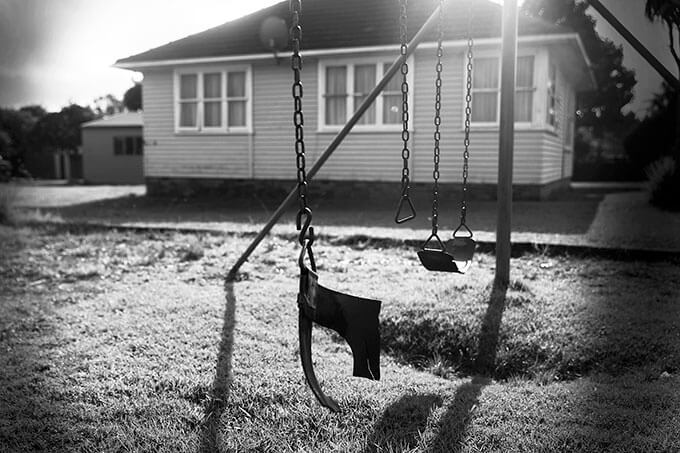
4. Education & health
Auckland’s education sector is in crisis. Chronically underfunded over many years and facing a teacher shortage caused by an unprecedented downturn in graduates entering the profession due to low pay, stressful conditions, and the cost or unavailability of housing, the region’s schools are facing ever-increasing challenges.
In the health sector, more than 162,000 people, or 3.5 per cent of the population, were seen by mental health or addiction services in the 2015-16 year. There was a 600 per cent increase in the number of days Auckland’s adult mental health inpatient units had no spare beds. Funding for mental health has increased by $300 million since 2009, but many in the profession say it hasn’t kept even close to demand and the system is near breaking point. Accident and emergency services are also struggling, with a seven per cent increase in visits at Auckland City Hospital and a three per cent increase in inpatients in 2015-16.
Prolonged poverty and an ageing and growing population are key factors in the added pressure our hospitals and health services are facing. Also, Auckland is largely reflective of New Zealand’s wider health statistics, where one adult in every three is obese, and a further 35 per cent are overweight. Around 16 per cent, or one in six of us, have been diagnosed with a common mental illness, such as anxiety, depression or bipolar disorder, at some point in our lives. Up to six per cent of us, around 200,000 adults, suffered from psychological distress such as anxiety or depression in the past four weeks.
The issue of mental health has become a maelstrom in our schools. Teachers and counsellors report increasing rates of obsessive compulsive disorders, agoraphobia, depression, anxiety, and suicidal ideation among students. New Zealand has the worst youth suicide rate in the developed world, and suicide is now our third leading cause of death. Again, experts find many of the same contributing factors: poverty, generational unemployment, insufficient or inappropriate housing, abuse.
What can the new government do to fix problems of this scale?
A strategy is needed to immediately get new teachers into the profession. The fastest way is to raise teacher salaries and provide other incentives such as bonding, or some other relief from student loans. It’s basic maths: record levels of teachers retiring, plus record-low levels of new graduates coming through, plus hugely increasing rolls equal a massive teacher shortage. The new government has to fix this problem, or society will pay an unprecedented cost in 10 years.
There are calls for an independent inquiry into the state of our mental health services, and this would be a good place to start, along with a commitment to proper funding. The recent People’s Mental Health Review recommended rolling out nationwide mental health education programmes and the reinstatement of the Mental Health Commissioner to provide independent oversight. We support both.
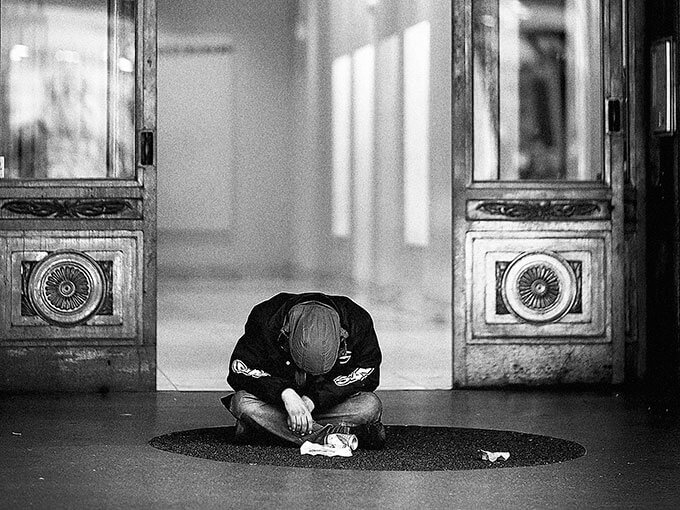
5. Crime & drugs
According to New Zealand police data, there were 40,999 “victimisations” in the Auckland region in the year to May 2017. The total included more than 10,582 acts “intended to cause injury”, 1075 sexual assaults, and nearly 27,500 theft and burglary complaints. That many sexual and violent assaults alone is totally unacceptable for Auckland, or anywhere.
The good news is that overall, crime was down slightly, by 66 complaints. But Auckland still has five of New Zealand’s top-10 city precincts for attacks or sexual assaults. These include lower Queen St and its surrounds, where your chances of being a victim are six times the national average. Despite this, police closed their satellite station in Fort St in 2013, declaring it was no longer needed because “officers are using more mobile technology”.
How does Auckland fix such a perennial issue? Despite everything we’ve been told over the years about smarter technology creating efficiencies, the best short-term solution for clearing cases and bringing down the numbers is — surprise — more police. The government announced an extra $503 million this year for another 880 officers nationally over four years, but the Police Association says without the extra money, the force would have been in real crisis. We believe it.
To really swing the needle in the direction of a safer Auckland with better criminal justice outcomes, the next government will need a plan for eradicating two of the root causes of crime: poverty and addiction.
Alcohol is our worst drug, but methamphetamine is easier to vilify, and is easily linked to all kinds of crime. New Zealand’s issue with this pernicious drug and our history of failure in preventing its growth mean now is the time for some radical thinking about how to combat it. We’re dreaming if we think we can arrest our way out of the problem, or prosecute users out of addiction.
We need an independent drug task force to look at all of our drug laws, with recommendations binding on the new government. Legalisation of possession for all drugs would be a good start, with the government intelligently regulating and distributing them, on the legal basis that the market would never be privatised. As well as cutting the gangs off from their financial oxygen and destroying their power base, we could actually help users desperate for treatment.
Ten people died from suspected synthetic “cannabis” use in Auckland in July alone, while our drug laws drive the much safer real marijuana further underground. It’s hard to believe.
As has happened in Portugal, we must redirect the colossal waste of money we currently funnel into enforcement and imprisonment — around $273 million annually — into rehabilitation and education.
Taxing our current drug use would contribute a further $245 million. With $518 million made available every year for 15 years, our professional health organisations should eliminate the P problem once and for all. ?New Zealand needs true generational change based not on punishment and hypocrisy, but on eradicating the real causes. The truly visionary thing Portugal did to eliminate its heroin problem was to offer wage subsidies to businesses employing former addicts, paid for from money saved in the criminal justice system.
This approach provides former addicts with human value and dignity, allowing them to build meaningful lives and healthy relationships and to properly reintegrate themselves into society, thus eliminating the reasons they took drugs in the first place.
6. The paralysing lack of vision
Sadly absent from our election debate was the most fundamental question of all: what kind of society do we actually want?
An overwhelming expediency has come to dominate New Zealand’s political thinking, a stampede for the centre ground where voters are imagined to live. Political parties no longer commit to visionary ideas and bring the people with them. There are no 10- or 20-year plans with roadmaps for success. Policy is created in an ad hoc manner, and our public service has become reactive, scared it might offend a government minister with something as inconvenient as the truth.
This expedient approach was exemplified by John Key’s hugely expensive and failed new flag project. Rather than using the process to discover and debate the core values of what it means to be a New Zealander, and how these might best be represented, we had a cosmetic process where we talked about colours, ferns, and laser beams; anything but children living in poverty, or water rights, or a generation locked out of property ownership, and how that sits with us as a country.
The role of government is to lead. When a government is prepared to accept nearly 300,000 of the nation’s children living beneath the poverty line, and refuses to accept any kind of universal measurement for the problem, then we are in an intellectual, moral and spiritual malaise. It’s no wonder up to a million people feel so disenfranchised from the process that they don’t vote.
Would increasing the government’s term from three years to four encourage longer-term thinking? Maybe, but what’s needed more urgently is a move away from the failed policies of the past. We need a real commitment to ending poverty, an end to our institutional denial about its extent, and a passionate desire on the part of the government to restore the equality of opportunity that has been so eroded over the past 30 years.
We need tax reform, but not in the form of tax cuts for individuals. Instead, we urgently need to deal with issues such as transfer pricing and base erosion. We need capital controls limiting the $4 billion a year in bank profits being sent overseas, and regulations to prevent the rapacious profit-gouging by oil companies. We need reform of the property market to make it unattractive as an investment, so all that dormant capital goes into more-productive parts of the economy, creating businesses and wage growth and increasing the tax base. For people who’ve doubled or tripled their wealth by owning property, be it through good luck or good fortune, these arguments often aren’t easy to hear. But it’s a discussion we must have as a country, or run the risk of becoming permanently impoverished.
When Auckland succeeds, New Zealand succeeds. But as the City Mission says, our window for meaningful change is rapidly closing. The next government must hold it open.

